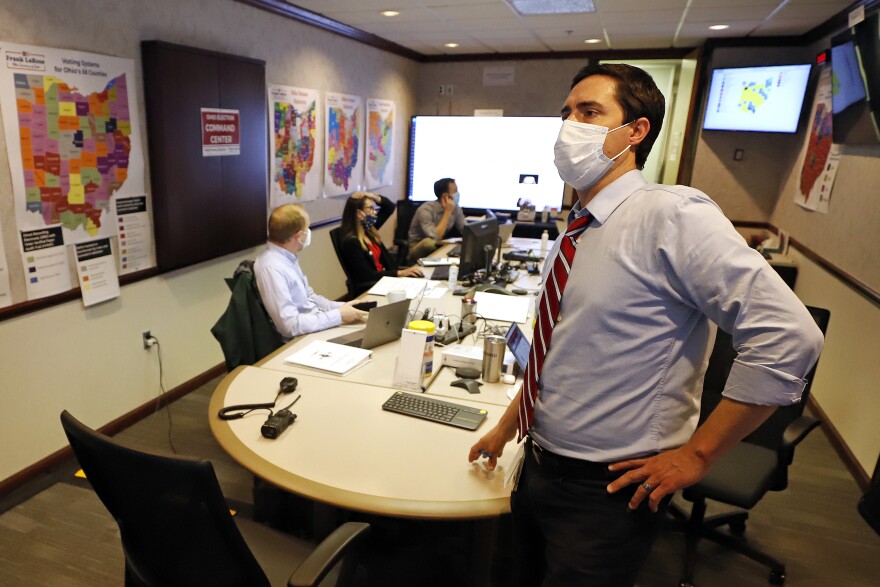Ohio's election Tuesday was definitely out of the ordinary, but Secretary of State Frank LaRose still counts it as successful.
The primary was postponed from its original St. Patrick’s Day date, and there was hardly any in-person voting. A glut of last-minute mailed ballots meant delays in Franklin County and in other population centers across the state.
Unofficial results put turnout at about half of the 3.3 million that voted in 2016’s primary, but LaRose says that's a win.
“With a non-competitive presidential primary, and in the midst of a global pandemic, and with all the other challenges we had to deal with, the fact that we got close to 2 million ballots cast in this election is a remarkable thing,” LaRose says.
In 2012, when Ohio’s primary date coincided with Super Tuesday, and the Republican primary was still competitive, turnout hovered around 2 million voters. In contrast, the 2020 primary had essentially narrowed to just one Democratic candidate, Joe Biden, while President Trump was unopposed on the Republican side.
The League of Women Voters of Ohio backed a failed legal challenge to try to extend the election. The group's director Jen Miller says this year's low turnout is proof that the process was confusing.
“Yes, I think some people decided not to vote because the primary candidates at the presidential level were determined, but I think there were a lot of individuals that just simply were not served by this complicated system,” she says.
LaRose defended the process that Ohio ended up with.
“We had to conduct an election in the midst of a global pandemic where every Ohioan had the chance to make their voice heard without jeopardizing their health. In that sense, I think we accomplished that mission,” he says.
But he doesn’t deny that last-minute changes and lack of in-person voting may have dampened turnout.
“Was it perfect? Far from it," LaRose said. "In an emergency scenario like this, you don’t get perfect. It’s just not possible.”
Both LaRose and Gov. Mike DeWine had originally advocated for another plan with an election date of June 2 and in-person voting. His proposal also would have sent postage-paid absentee ballot applications to every voter who had yet to cast an early ballot.
Ohio lawmakers shot both suggestions. LaRose says he’ll push for similar ideas as the state approaches the general election in November.
“I hope we’re able to have that traditional kind of election, but we have to be ready for a much higher vote-by-mail,” he says.
That includes the ability for voters to request ballots online and to pay the cost of postage for the reply envelopes.





